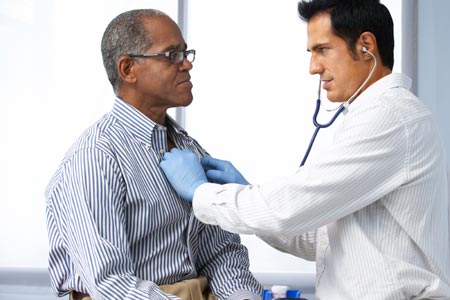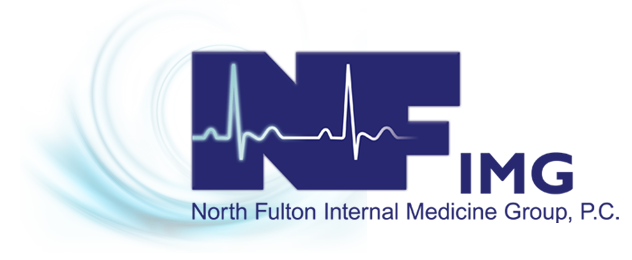Cardiovascular Care

Cardiovascular Ultrasound Testing
What is an ultrasound?
An ultrasound is an imaging test that uses sound waves to create a picture (also known as a sonogram) of organs, tissues, and other structures inside the body. Unlike x-rays, ultrasounds don't use any radiation. An ultrasound can also show parts of the body in motion, such as a heart beating or blood flowing through blood vessels.
What is an echocardiogram?
An echocardiogram is a test that uses sound waves to create pictures of the heart. The picture and information it produces is more detailed than a standard x-ray image. An echocardiogram does not expose you to radiation.
What is a carotid ultrasound?
Carotid ultrasound uses sound waves to produce pictures of the carotid arteries in the neck which carry blood from the heart to the brain.
What is an abdominal aortic ultrasound?
An abdominal aortic ultrasound is performed to diagnose aneurysms in the aorta, the main blood vessel leading away from the heart and the largest artery in the body.
Treadmill Stress Testing
A treadmill stress test is also known as an exercise stress test. This test is performed in our office and is used to measure the effect of exercise on your heart.
Flat, sticky patches called electrodes will be placed on your chest. These patches are attached to an ECG monitor that follows the electrical activity of your heart during the test.
You will walk on the treadmill slowly at first and be asked to walk faster and on an incline or with more resistance. It is like walking fast or jogging up a hill.
While you exercise, the activity of your heart is measured with an electrocardiogram (ECG). Your blood pressure readings are also taken.
The test continues until:
- You reach a target heart rate.
- You develop chest pain or a change in your blood pressure that is concerning.
- ECG changes suggest that your heart muscle is not getting enough oxygen.
- You are too tired or have other symptoms, such as leg pain, that keep you from continuing.
You will be monitored for 10 to 15 minutes after exercising, or until your heart rate returns to baseline. The total time of the test is around 60 minutes.
Nuclear Stress Testing
Nuclear stress test is an imaging method that uses radioactive material to show how well blood flows into the heart muscle, both at rest and during activity.
This test is performed in our office and is done in stages:
You will have an intravenous (IV) line started, and a radioactive substance, such as thallium or sestamibi, will be injected into one of your veins. You will lie down and wait for between 15 and 45 minutes. A special camera will scan your heart and create pictures to show how the substance has traveled through your blood and into your heart.
You will then walk on a treadmill. After the treadmill starts moving slowly, you will be asked to walk faster and on an incline. Your blood pressure and heart rhythm (ECG) will be watched throughout the test. When your heart is working as hard as it can, a radioactive substance is again injected into one of your veins. You will wait for 15 to 45 minutes. Again, the special camera will scan your heart and create pictures.
Your provider will compare the first and second set of pictures using a computer. This can help detect if you have heart disease or if your heart disease is becoming worse.

